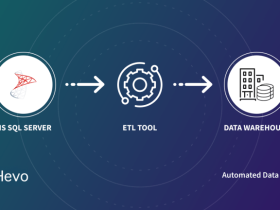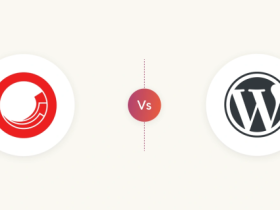The digital strategy you have will succeed or fail depending on the choice of the content management system. Organizations are considering more than traditional CMS platforms and solutions that are scalable, flexible, and offer enterprise-level features in 2025.
Sitecore, compared to other CMS systems, is a question that comes as a critical decision to a business that wishes to manage multimedia content effectively. As more products require customization, analytics, and automation, understanding the differences allows you to select the most advantageous platform.
In this article, we are going to compare Sitecore with the most famous CMS alternatives, discuss the main dissimilarities, and explain why the investment in professional Sitecore Developers can pay off the highest.
What Makes Sitecore Unique
Sitecore is an enterprise-level CMS designed for sophisticated online experiences. It is also unlike other traditional platforms that incorporate marketing, analytics, and personalization tools into the system. Its powerful platform enables companies to provide customized content to all websites, apps, and other digital platforms, while retaining complete control over brand and user experience.
Through Sitecore, organizations get:
- Single control of digital resources, content, and campaigns.
- It is AI-based personalization of targeted experiences.
- Data-driven decision-making analytics.
- The automation of workflow to enhance team efficiency.
These characteristics allow Sitecore to be a good competitor in companies that want to expand their online business and uphold the quality of their digital presence
Sitecore vs Other CMS: Key Differences
Here’s a detailed comparison of Sitecore with other popular CMS platforms:
| Feature | Sitecore | WordPress | Drupal | Umbraco |
| Target Users | Enterprise-level organizations | Small to medium businesses, bloggers | Medium to large businesses | Small to medium businesses, enterprise-ready |
| Customization | Highly customizable with advanced developer tools | Extensive plugins and themes, limited enterprise features | Highly flexible, developer-focused | Flexible, with .NET ecosystem support |
| Personalization | AI-driven personalization and marketing automation | Limited personalization via plugins | Requires additional modules | Basic personalization options |
| Scalability | Designed for multi-channel, enterprise-scale campaigns | Suitable for smaller websites | Scales with complexity, requires technical expertise | Good scalability within .NET projects |
| Analytics & Reporting | Built-in analytics and insights | Limited, relies on third-party tools | Available via extensions | Basic reporting capabilities |
| Workflow & Collaboration | Advanced workflow and content approval features | Limited workflow management | Moderate workflow support | Moderate workflow support |
| Implementation Complexity | High, requires experienced developers | Low, beginner-friendly | Moderate, developer skill needed | Moderate, .NET knowledge needed |
| Cost | Premium pricing, enterprise-level | Free core, premium plugins | Free, with paid enterprise support |
.Key Advantages of Sitecore
Compared to other CMS platforms, there are a number of advantages to Sitecore:
- Enterprise-Grade Capabilities: Unlike WordPress or Umbraco, Sitecore is designed to support complex organizations with numerous channels.
- Integrated Personalization: AI suggestions will increase interest and conversions.
- Central Digital Asset Management: All the media, content, and campaigns are kept and dealt with centrally.
- Advanced Analytics: Real-time insights enable the process of making data-driven decisions without the use of third parties.
- Strong Security: It has a strong security capability that is suitable for industries that have a high compliance level.
The benefits of hiring expert Sitecore Developers are that they will maximize these benefits and tailor them to your specific business requirements.
When Other CMS Might Be Suitable
Sitecore is not as complex and costly as necessary in all businesses. WordPress, Drupal or Umbraco can be used when:
- Your business has a small to medium-sized site with few multi-channel requirements.
- You require an easy-to-use and quicker-to-realize platform.
- Enterprise-level CMS is not an investment that is made due to budget constraints.
Nevertheless, Sitecore is the best solution when it comes to enterprises that need to be scaled to the full extent, personalized, and have workflow management.
Sitecore vs WordPress
WordPress enjoys popularity because of its simplicity, themes, and extensions. It is suitable for blogs, e-commerce websites, and small business websites. Sitecore, in its turn, is enterprise-oriented, allowing complex online campaigns, cross-channel delivery, and Artificial Intelligence personalization.
Advantages of Sitecore in comparison to WordPress:
- Improved multi-channel support.
- The ability to provide high levels of personalization.
- Automated analytics and measurement.
Benefits of WordPress:
- Lower cost and easier setup
- Vast plugin ecosystem
- Supportive and friendly to beginners.
Sitecore vs Drupal
Drupal provides good scalability and flexibility to technically competent teams. It works on complex websites, and in most cases, a lot of developer input is needed. Sitecore offers a more integrated strategy and has built-in analytics, personalization, and workflow management.
Advantages of Sitecore over Drupal:
- Horizons marketing and analytical tools.
- AI-powered personalization
- Enterprise-grade security
Benefits of Drupal:
- Open-source, lower cost
- Very dynamic for developers.
- Strong community support
Sitecore vs Umbraco
Umbraco is an adaptable .NET CMS, which can work on small to medium projects. Sitecore offers enterprise opportunities, such as AI, automation, and multi-channel campaigns.
Advantages of Sitecore compared to Umbra:
- Native-built marketing automation.
- Enterprise scalability
- Advanced content workflows
Benefits of Umbraco:
- Easy .NET integration
- Reduced the small project cost.
- Simple and lightweight CMS
Choosing the Right CMS
In making the choice between Sitecore and other CMS, it should be considered:
- The size and growth strategies of your organization.
- Demand multi-channel content distribution.
- Personalization and analytics requirements.
- Financial and available resources of developers.
To build long-term scalability, personalization, and masterful workflow management, investing in Sitecore and recruiting skilled Sitecore Developers is usually the most prudent choice.
Conclusion
Sitecore is superior to other CMSs because of enterprises that need strong, scalable, and individualized online experiences. The multi-channel campaigns and complicated websites can be handled using its integrated marketing automation, analytics, and workflow solutions.
It is necessary to collaborate with specialists in order to achieve the maximum potential of Sitecore. Skylarsoftech is a company specialized in acquiring Sitecore Developers to assist you in implementing, customizing, and optimizing your Sitecore platform so that you achieve maximum efficiency and ROI. Our team guarantees a smooth roll-out and the success of their projects whether they are initiating a new project or upgrading to a different CMS. If you’re planning to hire Sitecore developers, Skylarsoftech can be your trusted partner.
FAQs
What makes Sitecore different from other CMS platforms?
In comparison to most traditional CMS platforms, Sitecore includes enterprise-level functionality, such as AI-based personalization, analytics, workflow automation, and multi-channel content delivery.
Can small businesses benefit from Sitecore?
Sitecore is pointed towards enterprise-level organizations. WordPress or Umbraco can be more cost-effective for small companies.
What are the reasons to recruit Sitecore Developers?
The seasoned developers perform the correct configuration, integration, and optimisation so that you can benefit effectively from all the advanced features of Sitecore.
Is Sitecore suitable for multi-channel content delivery?
Yes, it provides content delivery that is smooth across websites, mobile apps, social media, and other online platforms.
What is the effect of Sitecore on team cooperation?
Sitecore brings together content, asset,s and workflows, allowing marketing and content teams, as well as the IT department, to work together effectively and minimize errors.










































Leave a Reply